第69章 IS CONGRESS THE PRESIDENT'S MASTER?(3)
Asserting that Congress could no more command the army than it could adjudicate a case,he further asserted that the Supreme Court had settled the matter and had lodged the war powers in the President.He cited a decision called forth by the legal question,"Can a Circuit Court of the United States inquire whether a President had acted rightly in calling out the militia of a State to suppress an insurrection?""The elevated office of the President,"said the Court,"chosen as be is by the People of the United States,and the high responsibility he could not fail to feel when acting in a case of such moment,appear to furnish as strong safeguards against the wilful abuse of power as human prudence and foresight could well devise.At all events,it is conferred upon him by the Constitution and the laws of the United States,and therefore,must be respected and enforced in its judicial tribunals."[9]
Whether or not constitutional lawyers would agree with Browning in the conclusion he drew from this decision,it was plainly the bed rock of his thought.He believed that the President--whatever your mere historian might have to say--was in point of fact the exponent of the people as a whole,and therefore the proper vessel for the ultimate rights of a sovereign,rights that only the people possess,that only the people can delegate.And this was Lincoln's theory.Roughly speaking,he-conceived of the presidential office about as if it were the office of Tribune of the People.
There was still another reason why both Lincoln and Browning feared to yield anything to the theory of congressional supremacy.It was,in their minds,not only the general question of all Congresses but immediately of this particular Congress.An assembly in which the temper of Wade and Chandler,of Stevens and Sumner,was entering the ascendent,was an assembly to be feared;its supremacy was to be denied,its power was to be fought.
Browning did not close without a startling passage flung square in the teeth of the apostles of fury.He summed up the opposite temper,Lincoln's temper,in his description of "Our brethren of the South--for I am willing to call them brethren;my heart yet yearns toward them with a fervency of love which even their treason has not all extinguished,which tempts me constantly to say in their behalf,'Father,forgive them,for they know not what they do.'"He pleaded with the Senate not to consider them "as public enemies but as insurgent citizens only,"and advocated an Act of Amnesty restoring all political and property rights "instantly upon their return to allegiance and submission to the authority of the government."Had this narrowly constitutional issue arisen in quiet times,who can say how slight might have been its significance?But Fate had decreed that it should arise in the stormiest moment of our history.Millions of men and women who cared nothing for constitutional theories,who were governed by that passion to see immediate results which the thoughtless ever confuse with achievement,these were becoming hysterical over delay.
Why did not the government do something?Everywhere voices were raised accusing the President of cowardice.The mania of suspicion was not confined to the Committee.The thoughts of a multitude were expressed by Congressman Hickman in his foolish words,"These are days of irresponsibility and imbecility,and we are required to perform two offices--the office of legislator and the office of President."The better part of a year had passed since the day of Sumter,and still the government had no military success to its credit.An impetuous people that lacked experience of war,that had been accustomed in unusual measure to have its wishes speedily gratified,must somehow be marshalled behind the government,unless the alternative was the capture of power by the Congressional Cabal that was forming against the President.
Entering upon the dark days of the first half of 1862,Lincoln had no delusions about the task immediately before him.He must win battles;otherwise,he saw no way of building up that popular support which alone would enable him to keep the direction of policy in the hands of the Executive,to keep it out of the hands of Congress.In a word,the standing or falling of his power appeared to have been committed to the keeping of the army.What the army would do with it,save his policy or wreck his policy,was to no small degree a question of the character and the abilities of the Commanding General.